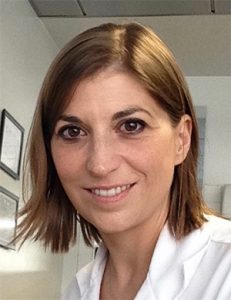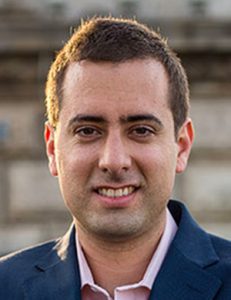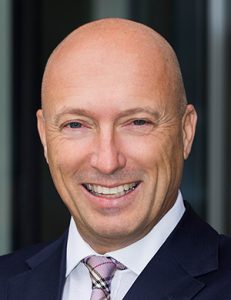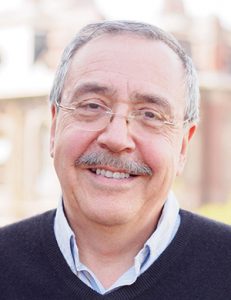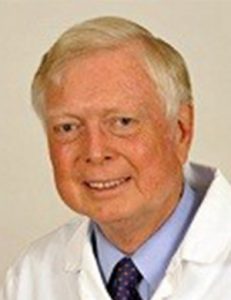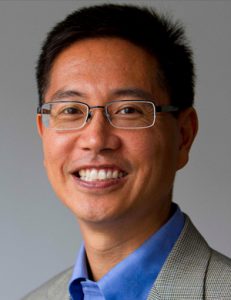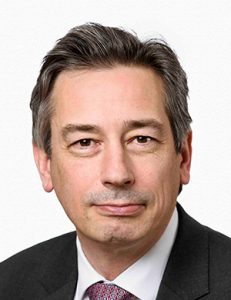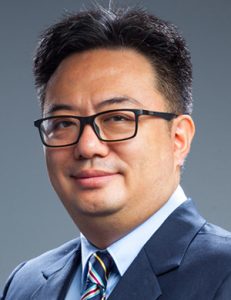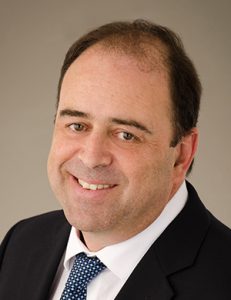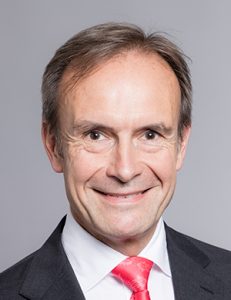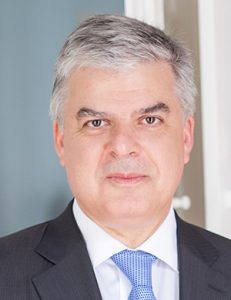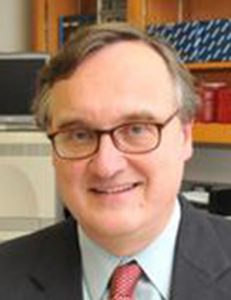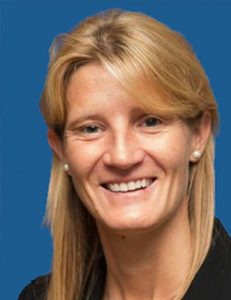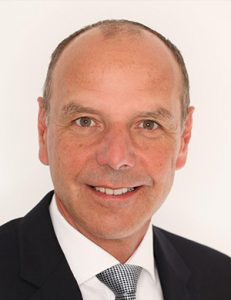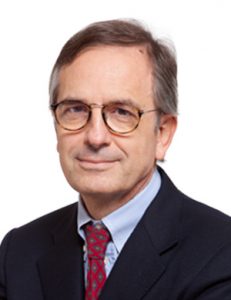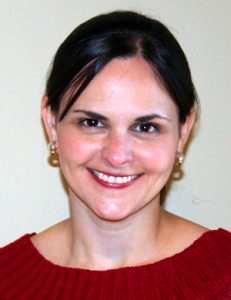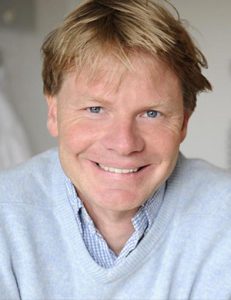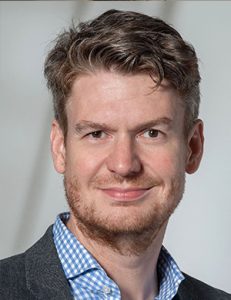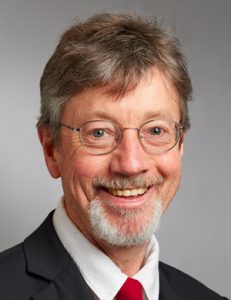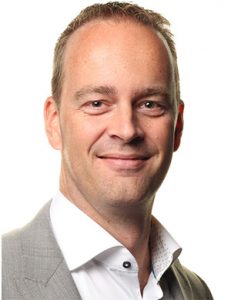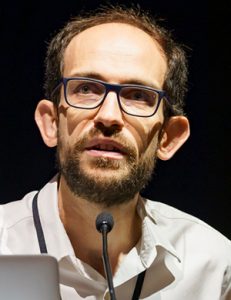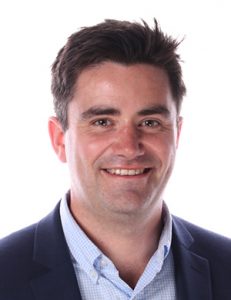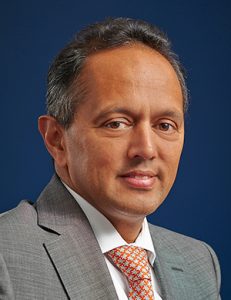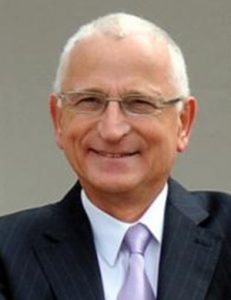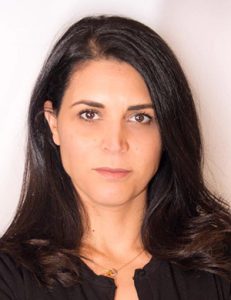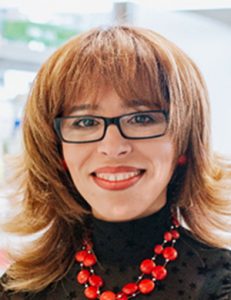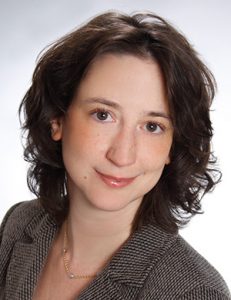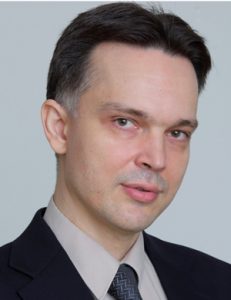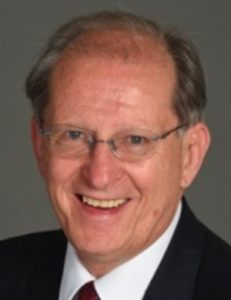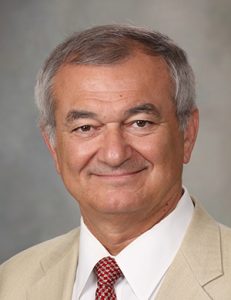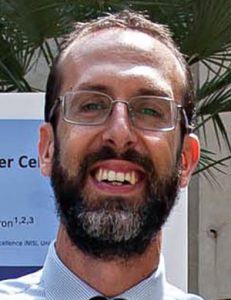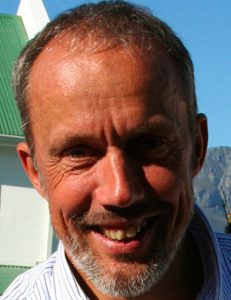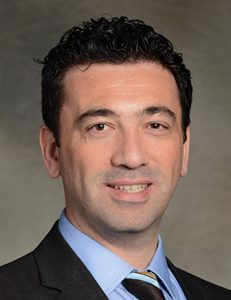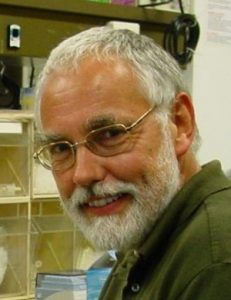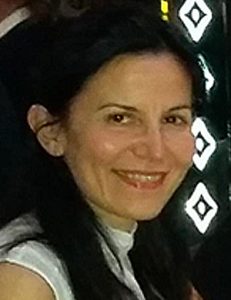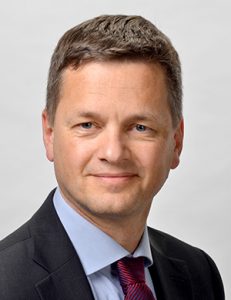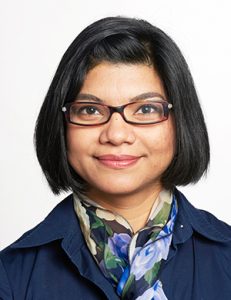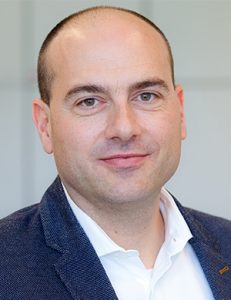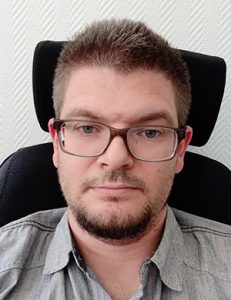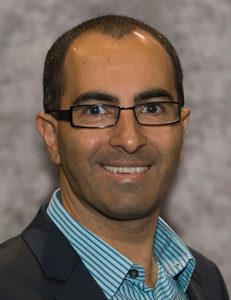Conference Co-Chairs:
- Prof. Béla Merkely, MD, PhD, MSc, DSc, FESC, FACC
Rector - Prof. Péter Ferdinandy, MD, PhD, MBA
Vice-Rector for Science & Innovations - Prof. Miklós Kellermayer, MD, DSc
Dean, Faculty of Medicine
Local Organizing Committee:
| Cardioprotection & Cell Death Session | Péter Ferdinandy, Zoltán Giricz |
| Cardiotoxicity & Drug Safety Session | Péter Ferdinandy |
| Comorbidity Session | Andrea Fekete, Péter Sótonyi Jr. |
| Extracellular Vesicles Session | Edit Buzás, Zoltán Giricz |
| Heart Failure Session | Tamás Radovits |
| Imaging Session | Pál Maurovich-Horvat |
| Inflammation Session | Zoltán Varga, Péter Ferdinandy |
| Regenerative Medicine Session | Péter Sótonyi Jr., Gábor Földes |
| Single Molecules Session | Miklós Kellermayer |
| Translational Medicine Session | Zoltán Benyó, Ákos Koller |
Speakers:
|
Anne Lejay (FR)Dr. Lejay is associate Professor in the Department of Vascular Surgery and Kidney Transplantation of the University Hospital of Strasbourg, France in 2008. She also joined the Institute of Medical Sciences of Toronto, Canada as research fellow. Besides working as a clinician, she particularly active in the scientific field of ischemia-reperfusion. Her work focuses on oxidative stress and regenerative medicine. |
Bence Gyoergy (CH)Dr. Gyoergy graduated in 2009 from Semmelweis Medical School then worked as a PhD Student at Semmelweis University with Prof. Edit Buzas and studied extracellular vesicles. After graduation he continued his research as a post-doctoral fellow at Harvard Medical School and Massachusetts General Hospital with Profs. Xandra Breakefield, Casey Maguire and David Corey. Currently he is Head of Clinical Translation at the Institute of Molecular and Clinical Ophthalmology in Basel. His group focuses on developing new vectors for gene therapy and translating CRISPR/Cas9 based gene editing and base editing technologies into the clinic. Besides research he works as an ophthalmologist and regularly sees patients with inherited retinal dystrophies. |
|
Bruno K Podesser (AT)After receiving his medical degree from the University of Vienna, Dr. Podesser trained in general and cardiac surgery at General Hospital in Vienna. With a Max Kade fellowship he went to Boston University between 1996/97. In 2001 he was promoted Associate Professor. Between 2006 and 2009 he was founding co-ordinator of the Ludwig Boltzmann Cluster for Cardiovascular Research. He has visiting professorships in Krakow, Verona and Harvard Medical School. In 2014 he has been appointed full professor and Head of the Center for Biomedical Research at the Medical University of Vienna. In 2019 he received the honorary membership of the Hungarian Society of Cardiology. Main areas of research are translational cardiovascular research. |
Carlos Bustamante (US)Professor of Molecular and Cell Biology, Physics and Chemistry at UC Berkeley and a Howard Hughes Medical Institute Investigator. He received his Bachelor’s and Master’s in Peru and obtained his PhD in biophysics from UC Berkeley. His laboratory specializes in single molecule manipulation and detection methods like optical tweezers, magnetic tweezers and single molecule fluorescence microscopy to characterize the mechanochemical properties of molecular motors that interact with RNA, DNA and proteins. He is a Fellow of the American Physical Society and member of the National Academy of Sciences and the America Academy of Arts and Sciences. He is also in the Board of Directors of the American Association for the Advancement of Science. |
|
Christopher S Wilcox (UK-US)Dr. Wilcox received his MD from Oxford University and Ph.D. from London University and fellowship training in nephrology and hypertension at University College, London. He has held faculty at London and Cambridge Universities, Yale, Harvard and Florida Universities. He is currently Professor of Nephrology and Director of the Hypertension Center and is also the Walters Family Chair in Cardiovascular Research at Georgetown. He is a Fellow of the Royal College of Physicians, the Royal Society of Medicine, the American Heart Association, American Society of Nephrology and a Master of the American College of Physicians. His research interests include developing new drugs for hypertension or edema, microvascular function and the renal mechanisms of hypertension. |
Cristopher Chen (US)Christopher S. Chen, M.D., Ph.D., Professor of Biomedical Engineering at Boston University and the Harvard Wyss Institute for Biologically Inspired Engineering, has been instrumental in developing engineered cellular microenvironments to understand how cells build tissues. He serves as a fellow for the American Institute for Medical and Biological Engineering, member of the Faculty of 1000, Editorial Board for Science Translational Medicine, Annuals Reviews of Cell and Developmental Biology, and Developmental Cell. He received his Ph.D. from M.I.T., and M.D. from Harvard Medical School. He was founding director of the Penn Center for Engineering Cells and Regeneration before his current appointment. |
|
David Newby (UK)Prof. Newby graduated from the University of Southampton with a Bachelor of Science and Bachelor of Medicine, and obtained Doctorates in Medicine, Philosophy and Science. He is British Heart Foundation Duke of Edinburgh Chair of Cardiology at the University of Edinburgh, Director of the Wellcome Trust Clinical Research Facility, Director of Edinburgh Imaging facilities, and a Consultant Interventional Cardiologist at Royal Infirmary of Edinburgh. |
Derek J Hausenloy (SG)Derek Hausenloy is Professor at Duke-National University of Singapore Medical School and University College London. He is a Senior Consultant Cardiologist at the National Heart Centre, Singapore. He conducts both basic and clinical research in the area of ischaemic heart disease, heart failure, cardioprotection and cardiac MRI. His research focus is on discovering novel therapies for protecting the heart against the detrimental effects of acute ischaemia/reperfusion injury in order to prevent the onset of heart failure. He uses a translational approach to cardioprotection such as cellular and animal models of acute IRI to proof-of-concept clinical studies in acute myocardial infarction and cardiac bypass surgery patients. |
|
Dilson Rassier (CA)Dr. Rassier is a Professor at the Department of Kinesiology and Physical Education and the Dean of the Faculty of Education at McGill University. He obtained his PhD in Muscle Physiology in 1998 in the department of Medical Sciences at the University of Calgary and underwent postdoctoral training at the University of Calgary and the University of Washington. |
E. Sebastian Debus (DE)Dr. Debus is Professor for Surgery and Chair of the Department of Vascular Medicine, University of Hamburg-Eppendorf, Germany. He is the current Secretary General of the European Society for Vascular Surgery. He was President of the German Vascular Society 2013/2014, chairs the Northern German Society of Surgery and the Northern German Society for Vascular Medicine. He was member of the presidium of the German Society of Surgery 2013/2014. His main research interests are vascular epidemiology and vascular care, aortic pathologies and peripheral occlusive disease. He is founder of the german vascular registry program and is engaged in various projects of the European Society for Vascular Surgery. |
|
Fausto Pinto (PT)Dean of the Faculty of Medicine of the University of Lisbon, and Full Professor of Cardiology, Head of the Cardiology Department and of the Heart and Vascular Department of Santa Maria University Hospital, President Elect of the World Heart Federation (WHF) (2019-2020), National Coordinator of the Medical Schools Council (2018-2020) and President of the Executive Board of the Lisbon Academic Medical Centre (CAML) (2019-2021) and Director of Lisbon Cardiovascular Institute (ICVL) since 1999. |
Gabor J. Tigyi (US)Dr. Tigyi is Harriett Van Vleet Endowed Professor of the Department of Physiology and Associate Vice Chancellor for Research of the University of Tennessee Health Science Center Memphis. Dr. Tigyi’s primary interest concerns the physiological and pathophysiological role of lysophospholipid mediators He is a Scientific Advisor of and recipient a Honorary Doctorate from Semmelweis University. He is External Member of Hungarian Academy of Sciences (HAS), the European Academy. He serves on the President’s Strategic Advisory Committee of the HAS. He holds numerous awards including the Arany Janos, the Wheeley, and the Nagayoshi Nagai prizes. His over 220 publications have a Hirsch index of 66 with over 14,000 citations. |
|
Gemma Vilahur (ES)Dr. Gemma Vilahur coordinates the Translational Research Department at the Research Institute of the Hospital Santa Creu i Sant Pau in Barcelona since her return from USA in 2006. She is PI of multiple National and European projects, has published 125 articles (3.339 citations, H index=34) including original manuscripts, consensus/position papers, and reviews, and 31 book chapters. Her research focuses on ischemic heart disease and the discovery of new cardioprotective approaches. She is co-author of 4 patents, co-founder of 2 Spin-Off, has received many International Scientific Awards (Outstanding Achievement Award – European Society of Cardiology 2019) and has positions of trust in different International Scientific Societies. |
|
|
Giorgio Minotti (IT)Dr. Giorgio Minotti is Professor of Pharmacology and Dean of the School of Medicine at the University Campus Bio-Medico of Rome. He authored over 100 papers, mostly focusing on pharmacokinetics, pharmacodynamics, and clinical correlates of anticancer drugs cardiovascular toxicity. He is Editor-in-Chief of Chemotherapy, Deputy Editor of Cardio-Oncology, member of the Editorial Board of Journal of Pharmacology and Experimental Therapeutics. His work has been awarded by Academic Press Inc., NATO Scientific Affairs Division, Southern Europe New Drugs Organization. Italian Ministry of University, Italian Association for Cancer Research. |
|
|
Jeroen Bax (NL)ESC Immediate Past-President (2018 – 2020), Jeroen Bax is Director of non-invasive imaging and Director of the echo-lab at the Leiden University Medical Center. His main interests include clinical cardiology, heart failure, cardiac resynchronization therapy and the application of all different imaging modalities to these clinical fields. Professor Bax has authored numerous papers and holds several positions in national and international scientific organizations, as well as serving on the editorial boards of many different journals. |
Johannes Backs (DE)Director of the Institute of Experimental Cardiology in Heidelberg. His group is interested in cardiac epigenetics and metabolism and has shown that cardiac function is controlled by protein kinases that differentially regulate histone deacetylases and thereby govern glucose and calcium handling. Recently, Johannes became the spokesperson of the German Center of Cardiovascular Research (DZHK) partner site Heidelberg/Mannheim and of the Translational Research Committee of the Heart Failure Association of the European Society of Cardiology. He serves on several boards and committees as an at-large council member of the International Society of Heart Research, and he is associate editor of the Journal of Molecular and Cellular Cardiology. |
|
Jonathon (Joe) Howard (US)Dr. Joe Howard is the Eugene Higgins Professor of Molecular Biophysics & Biochemistry, Professor of Physics at Yale University, and the Director of the Yale Quantitative Biology Institute. He is best known for his research on motor proteins and the cytoskeleton, and the development of techniques for observing and manipulating individual biological molecules. His research interests include the sensation of force in the ear and skin, the segregation of the chromosomes during mitosis, the motility of cilia and flagella, and the morphogenesis of neurons. He studied mathematics and neurobiology at the Australian National University, was professor of Physiology at the University of Washington and a Director of the Max Planck Institute of Molecular Cell Biology & Genetics prior to Yale. |
Joost Sluijter (NL)Prof. Joost Sluijter is a Medical Biologist. After being a postdoctoral research fellow at Indiana University-Purdue University, he returned to the University Medical Centre Utrecht in 2006. In his research group, they focus on stimulating cardiac regeneration. In recent years, they identified miRNAs that can push cell lineage specifications and how they could improve progenitor cell transplantation, specifically improving local delivery and cell retention. In this work, they have started to use 3D-bioprinting and advanced technologies of cardiac tissue engineering and is studying the use of secreted vesicles by these cells as a novel approach to induce cardiac repair. |
|
Jorge Alegre-Cebollada (ES)Jorge Alegre-Cebollada obtained a PhD in Biochemistry in 2008 (Complutense University of Madrid), under the supervision of Prof. Álvaro Martínez del Pozo and Prof. Pepe Gavilanes. Jorge joined the laboratory of Prof. Julio Fernández at Columbia University (New York, US) for postdoctoral training. During his time in New York, Jorge led several research projects to understand how the elasticity of proteins can be regulated by posttranslational modifications. In 2014, Jorge joined the National Center for Cardiovascular Research (CNIC) in Madrid, Spain, to establish his independent group. His laboratory is interested in understanding how mechanical forces determine muscle function at the molecular, cellular, tissue and organismal levels. |
Marc Dweck (UK)Marc Dweck is a BHF Reader in Cardiology and Consultant Cardiologist at the University of Edinburgh. His research program is centred around the use of multi-modality imaging to improve our understanding of cardiovascular pathophysiology and ultimately to improve patient assessment, care and outcomes. In particular it has focused on two major areas i) coronary atherosclerosis and the factors associated with plaque rupture; and ii) the pathogenesis of aortic stenosis and the development of novel therapeutic strategies. |
|
Michael Nurmohamed (NL)Michael Nurmohamed is professor of Rheumatology at the Amsterdam University Medical Centers, Netherlands. His chair has a focus on cardiovascular comorbidities in rheumatic diseases. He is also Head of Rheumatology Research Dept. of Reade, Amsterdam, The Netherlands, where he also works as Rheumatologist and Clinical Research Scientist since 2000. His main scientific interests include cardiovascular co-morbidities in rheumatic diseases. Dr. Nurmohamed has (co)authored over 400 publications, is a regular reviewer for several international journals and an editorial board member of Annals of Rheumatic Diseases, Arthritis Research Therapy, Journal of Rheumatology, The Open Rheumatology Journal and PlosOne. |
Michel Komajda (FR)Michel Komajda’s main fields of interest are pharmacology of heart failure, neuro-hormones in heart failure, genetics of dilated and hypertrophic cardiomyopathy. He was President of the European Society of cardiology in 2010-2012 and has occupied the positions of Treasurer and General Secretary of the French Society of Cardiology and was President of this Society in 2002-2003. |
|
Myriam Aouadi (SE)Dr. Aouadi received her PhD from the University of Nice Sophia-Antipolis. Her work focuses on the mechanisms involved in adipose tissue expansion in obesity. During her postdoctoral studies at the University of Massachusetts she developed a unique method to deliver siRNA and silence genes specifically in macrophages in vivo. As an assistant professor at the University of Massachusetts she used this novel technology to show that macrophages could be both detrimental and beneficial to insulin sensitivity. Her lab investigates the multiple roles and heterogeneity of liver and adipose tissue macrophages in metabolic diseases and use technologies such as single cell RNAseq, recently discovering that macrophages can directly regulate metabolism independently of inflammation. |
Nazha Hamdani (GE)Dr. Hamdani studied Medicine and Pharmaceutical Sciences at Free University of Brussels and Amsterdam before doing her PhD at Cardiovascular Research at VU University Medical Center. Currently, she and her research team hope to develop HFpEF therapy specifically designed for men or women based on the physiology and co-morbidities involved in their case of HFpEF. She plans to focus on working towards developing these specialised therapeutic approaches. Dr. Hamdani’s research looks at the biological mechanisms and potential treatment options within heart disease, particularly focused on the connections between diastolic stiffness and heart failure with preserved ejection fraction. |
|
Nina Wettschureck (DE)Nina Wettschureck is Professor for Molecular Pharmacology at the Max Planck Institute for Heart and Lung Research in Bad Nauheim and the Center for Molecular Medicine, Goethe University Frankfurt, Germany. After receiving her MD at the University of Frankfurt, she was a post-doctoral fellow at the Universities of Berlin and Heidelberg, where she received her Habilitation for Pharmacology and Toxicology. Since 2009 she leads a group focusing on various aspects of GPCR signaling in the cardiovascular and immune system. |
Pal Pacher (US)Dr. Pacher is the Head of the Laboratory of Cardiovascular Physiology and Tissue Injury at National Institute on Alcohol Abuse and Alcoholism at NIH, USA. He co-authored over 300 peer-reviewed publications and with H index of 103 and over 41000 citations listed among top 50-100 most highly cited researchers in the World in Pharmacology and Toxicology field since 2010. |
|
Petar Seferovic (RS)University of Belgrade Faculty of Medicine Heart Failure Center, Belgrade University Medical Center Prof. Seferovic is President of the Heart Failure Association of the European Society of Cardiology. After completing his training and fellowship at Belgrade University School of Medicine and Kings College Hospital he spent two years as a Visiting Assistant professor in Methodist Hospital and Baylor College of Medicine in the USA. Prof. Seferović has led the introduction of several methods of interventional cardiology and myocardial and pericardial disease in Serbia, including percutaneous transluminal angioplasty, endomyocardial biopsy, percutaneous pericardioscopy and pericardial biopsy. His research interests mainly include heart failure, acute and chronic, cardiomyopthies, myocarditis, pericardial disease as well as cardiovascular disease and diabetes. |
Peter Gloviczki (US)Peter Gloviczki is Editor-in-Chief of the Journal of Vascular Surgery, the Roberts Emeritus Professor of Surgery, previous Division Chair and Director of Gonda Vascular Center at Mayo Clinic Minnesota. He received his medical degree in 1972 at Semmelweis University. He has authored 437 peer-reviewed publications, edited seven textbooks, has 30,200 citations, an h-index of 96. Past President of the Society for Vascular Surgery and International Union of Angiology, among others. Honorary member of the Hungarian Surgical and Angiology societies, he was awarded the “Doctor Honoris Causa” degree from Semmelweis University and the Officer’s Cross of the Order of Merit of Hungary. |
|
Pietro Ameri (IT)Pietro Ameri graduated in Medicine at the University of Genova (Italy) in 2006. After the residency, he received his PhD in 2014. He is now Assistant Professor in Cardiology in Genova, where he directs the Heart Failure program and the Laboratory of Cardiovascular Biology within the Cardiac and Vascular Research Center at the IRCCS Ospedale Policlinico San Martino University Hospital. He is chair of the Cardio-Oncology Committee of the IRCCS Italian Cardiovascular Network and a major focus of his research activity is the interaction between cancer, anticancer therapies and heart failure. |
Rainer Schulz (GE)Prof. Schulz has established and led an independent research group within the Department of Pathophysiology, University of Essen, Medical School, and since January 2011 is Chairman of Physiology at the Justus-Liebig University Giessen. He is recognized for his research on myocardial ischemia/reperfusion injury and protection from it. His research group uses a translational approach from subcellular particles towards large animal model to define new targets involved in IRI and investigate novel treatment strategies for protecting the heart. One focus of his research is the importance of mitochondrial derived reactive oxygen species for IRI and protection from it. More recently, the work is dedicated to pulmonary hypertension and right ventricular remodelling. |
|
Resat Cinar (US)Dr. Resat Cinar is a staff scientist in Dr George Kunos’ lab at the NIH in the USA. His research focuses on the role of the endocannabinoid system in metabolic regulation in complex fibroproliferative disorders. He is interested in a polypharmacology approach as a drug design strategy, aimed to develop more efficient and safer therapeutic modalities for fibrotic disorders. He is involved in the development, patenting and lead optimization of novel peripherally restricted hybrid compounds that simultaneously target peripheral cannabinoid 1 receptors (CB1R) and inducible nitric oxide synthase (iNOS) for their therapeutic potential in obesity, diabetes, fatty liver disease and fibrotic disorders such as scleroderma, liver and lung fibrosis. |
Rienk Nieuwland (NL)Dr. Nieuwland’s research focuses on isolation, detection and functional characterization of extracellular vesicles (EVs), and on standardization of EV measurements. For example, they introduced size-exclusion chromatography, improved understanding of EV detection, and studied the clinical relevance of (EV-dependent) coagulation in health and disease. Dr. Nieuwland coordinate METVES II (www.metves.eu), a European Metrology Programme for Innovation and Research funded project, in which healthcare, metrology and industry collaborate to standardize concentration measurements of EVs, and he am active in ISEV (International Society on Extracellular Vesicles) and ISTH (International Society on Thrombosis and Haemostasis). |
|
Rosalinda Madonna (IT)Dr. Madonna has worked on the use of genetic engineering techniques in combination with cell therapy in mouse models of acute myocardial infarction and limb ischemia for the treatment of cardiovascular diseases related to aging. The results of his research have contributed to the improvement of cell engraftment efficiency after transplantation into ischemic tissue by using over-expressing lentiviral vectors of the Telomerase Reverse Transcriptase (TERT) and myocardin in mesenchymal stromal cells isolated from adipose tissue. |
Stephan Achenbach (DE)Prof. Stephan Achenbach is the Chairman of the Department of Cardiology and Professor of Medicine at the University of Erlangen, Germany. His main clinical interests are Interventional Cardiology, General Cardiology as well as Cardiac Imaging. His research is focused on cardiac intervention and cardiac imaging, mainly computed tomography, with an emphasis on imaging of coronary atherosclerosis and imaging to support coronary and structural interventional procedures. Stephan Achenbach was the Founding President of the Society of Cardiovascular Computed Tomography. He is President Elect and Board Member of the European Society of Cardiology (ESC) and was Chairperson of the ESC Congress Programme Committee 2016-2018. |
|
Susmita Sahoo (US)Dr. Susmita Sahoo is an Associate Professor at the Cardiovascular |
Thomas Thum (DE)Prof. Thomas Thum studied medicine in Hannover, with state examination in 2001 and board examination for internal medicine/cardiology in 2009/2010. He received his PhD at the Imperial College, London (2008). He is a full professor and director of the Institute of Molecular and Translational Therapeutic Strategies at the Hannover Medical School, and Visiting Professor at the Imperial College. Thomas Thum (co-) authors > 300 publications and is a distinguished reviewer, board member, patent holder, and founder. |
|
Tony Jourdan (FR)After a Master’s degree and a PhD in cellular biology and physiology obtained at the University of Burgundy in Dijon (France) under the supervision ohe Pr. George Kunos at NIH. I mostly worked on the impact of macrophages-expressed CB1R on the development of type-2 diabetes, its renal complication and the development of hepatic insulin resistance. Late 2017, I moved back to France as a “Chargé de Recherche” INSERM in Dijon, France. My goal there is to develop a new research program aiming at unraveling the molecular mechanisms underlying the immunometabolic effects of macrophages-expressed CB1R during the development of diabetic dyslipidemia. |
Yossi (Joseph) Tam (IL)The Hebrew University of Jerusalem” Dr. Yossi Tam received his B.Med.Sc., M.Sc., Ph.D. and D.M.D. from the Hebrew University of Jerusalem. He did his postdoctoral training at the NIH, and in 2014, Dr. Tam moved to the Hebrew University, where he heads the Obesity and Metabolism Laboratory at the Institute for Drug Research, and focuses on targeting the endocannabinoid system for the metabolic syndrome and its associated comorbidities. He also serves as the Director of the Hebrew University’s Multidisciplinary Center for Cannabinoid Research and a Scientific Advisory Board Member of several biotech companies. He won major national and international awards and grants, and authored over 40 peer-reviewed papers in leading journals, and two book chapters. |
